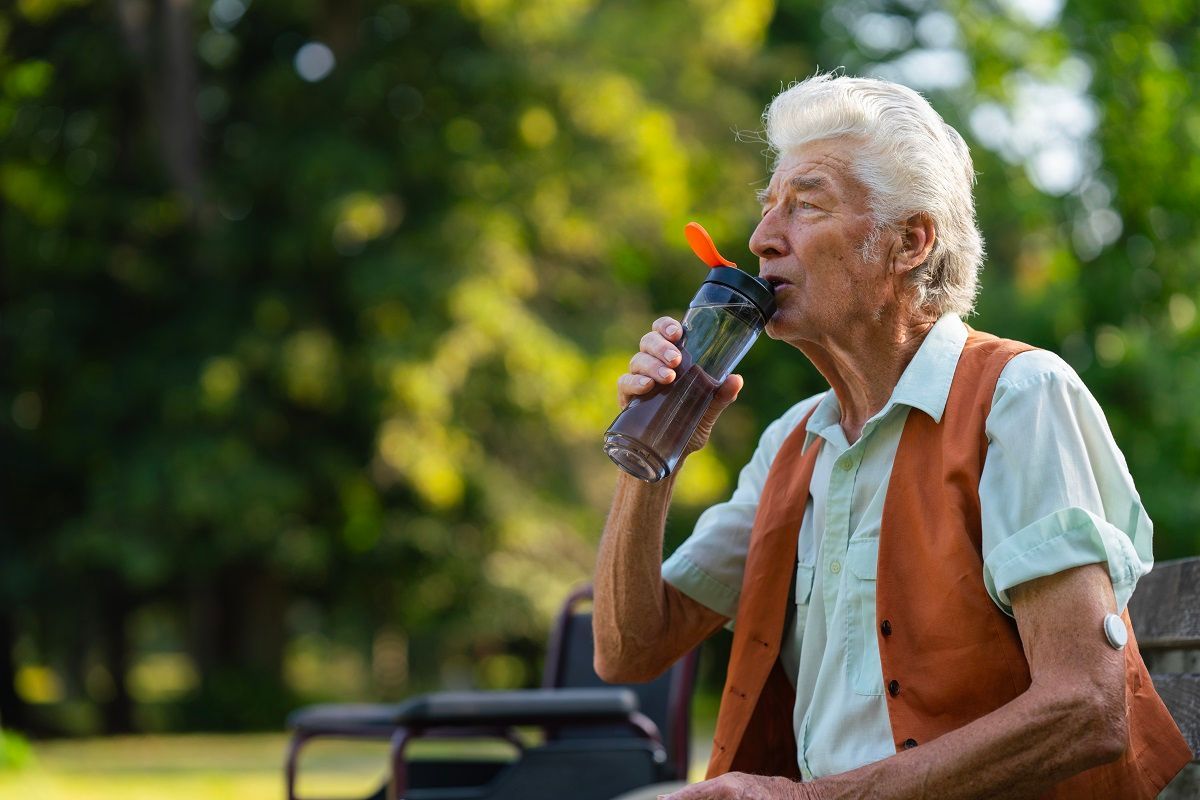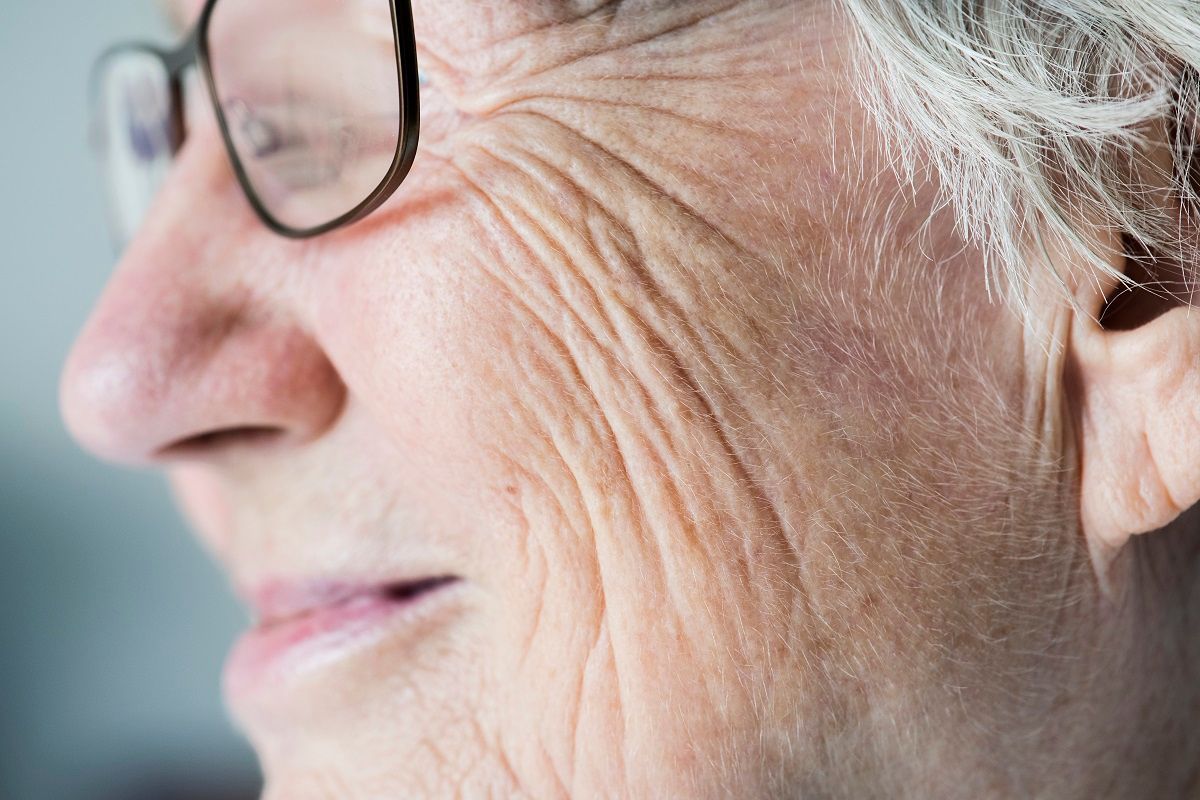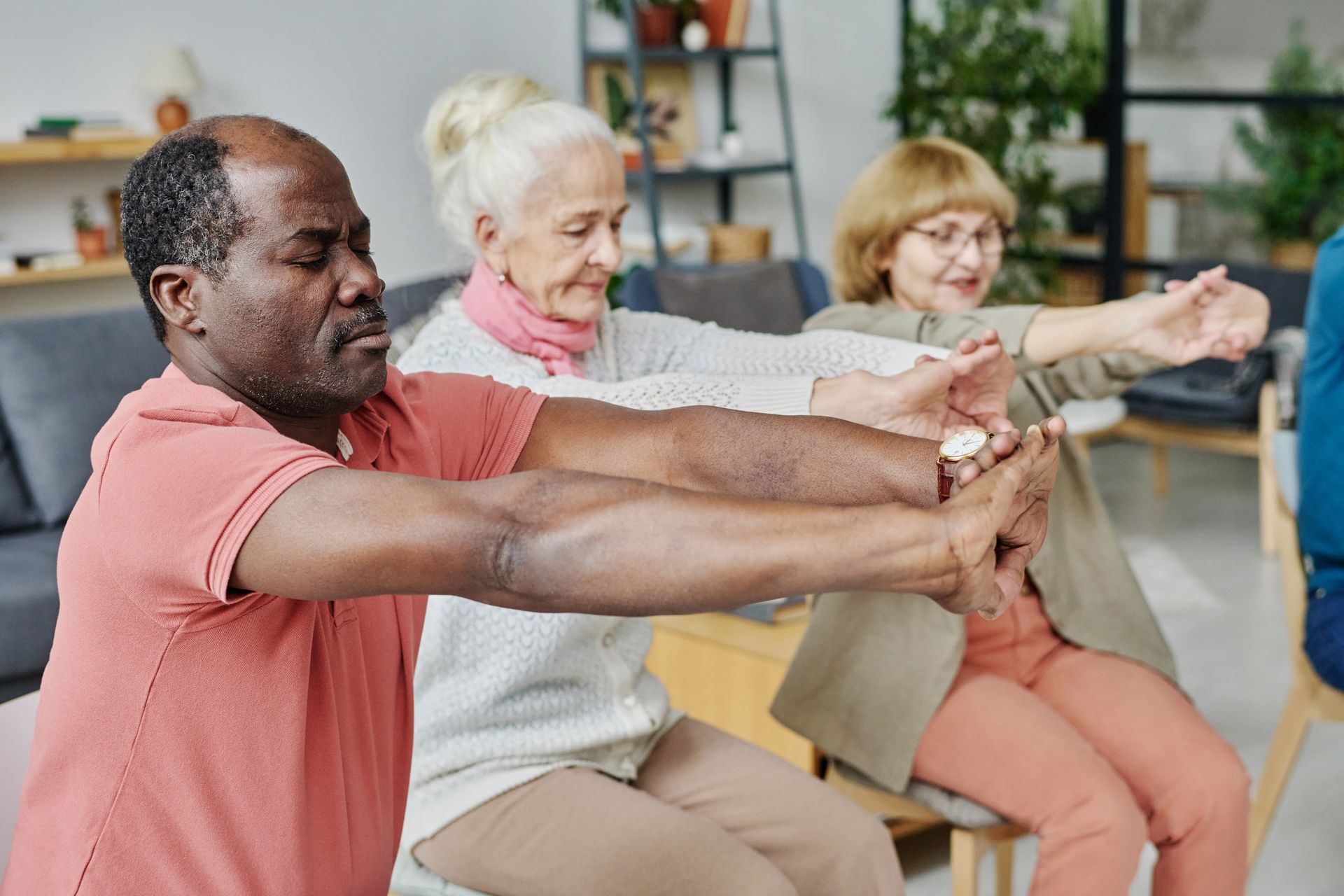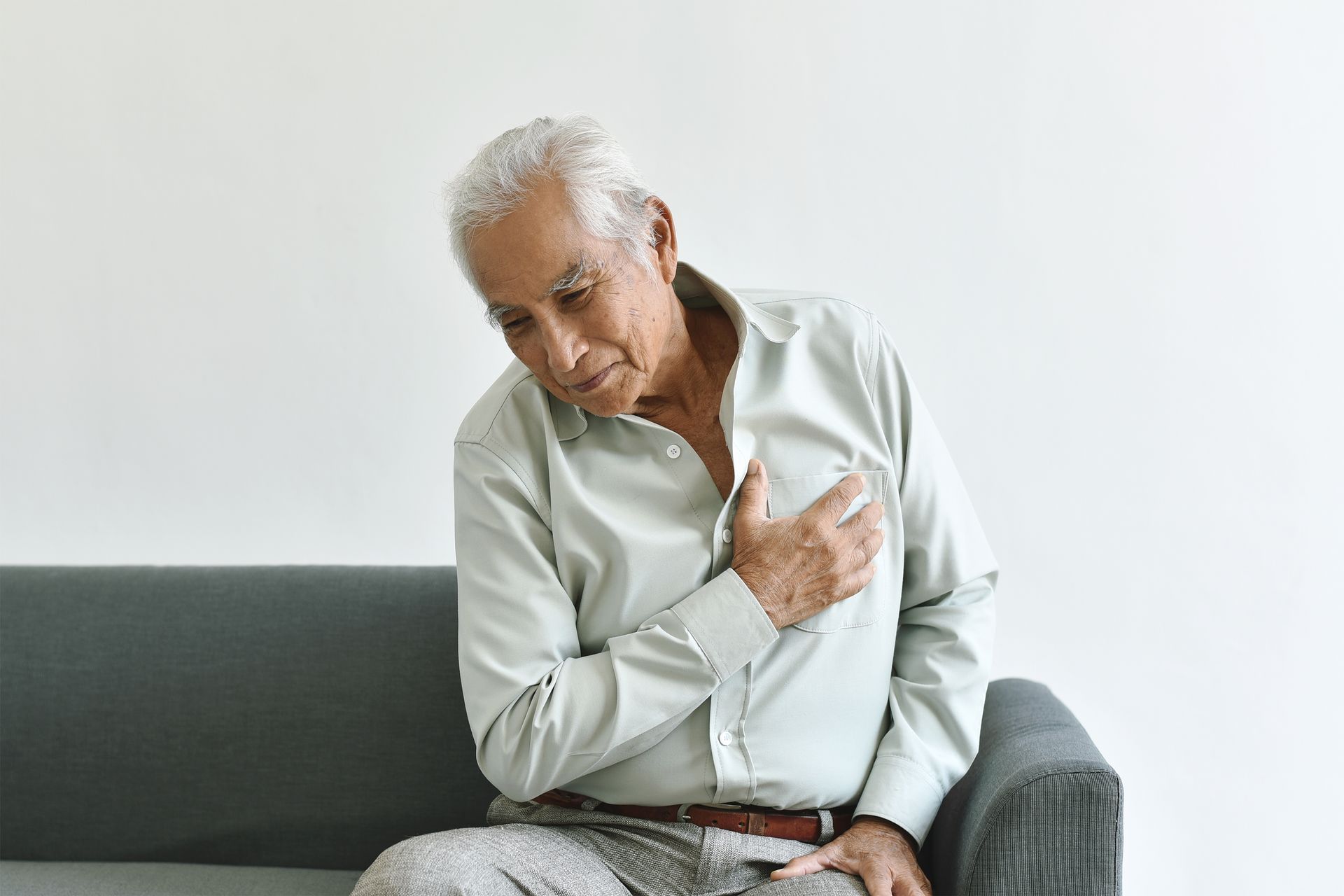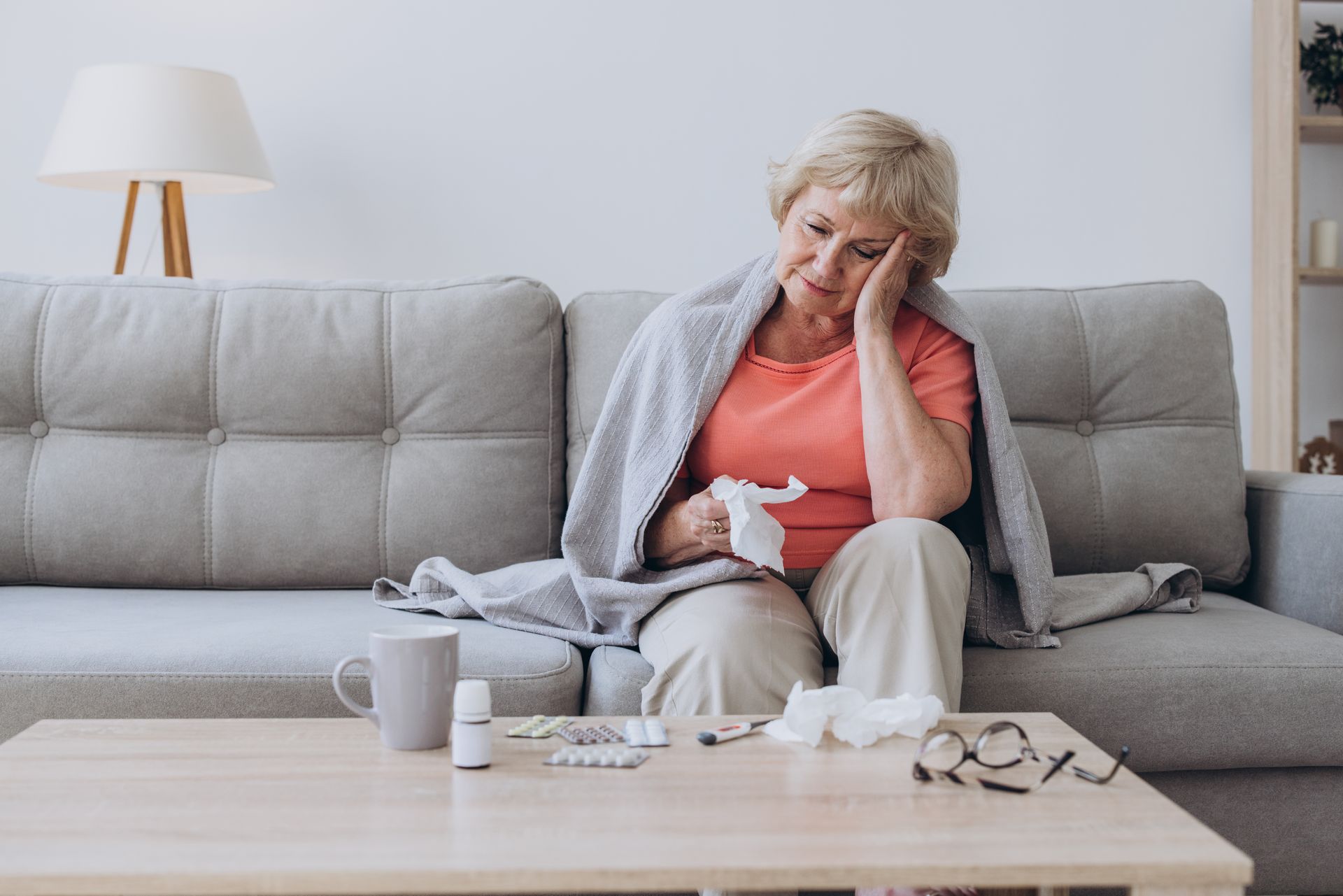Our Location
Elige tu idioma:
Joint Pain in Older Adults: Best Home Remedies and Treatments
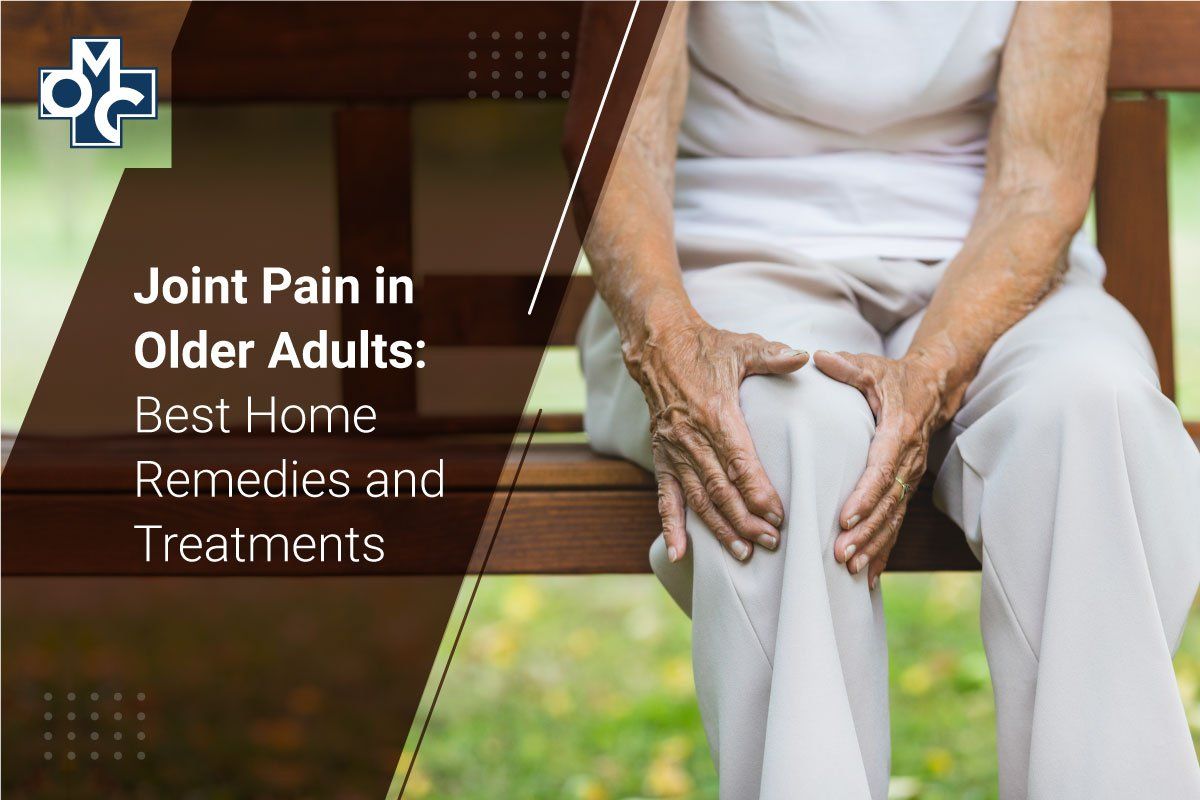
Joint pain affects many people, more than 50% of whom are older adults over the age of 65. The problem relates to swelling, breakdown of cartilage, and overuse. All these contributing factors can make day-to-day life painful and difficult, from getting up from a chair to simply going for a walk or even driving.
This article gives you some great advice on the various natural joint pain remedies and treatments.
Why Do We Get Pain in Our Joints?
As you age, joint pain can be a common issue. Some people may experience joint pain after exercising or working out, while others may experience joint pain upon waking up. Pain in the joins is typically the result of inflammation, which is caused by several factors, such as:
- Injury or trauma - such as a fall, sporting injury, or car crash
- Wear and tear /Overuse - especially with sports injuries or repetitive strain injuries (RSIs)
- Inflammation - such as rheumatoid arthritis or gout
- Degenerative diseases - such as osteoarthritis
- Infection
Although joint pain does happen everywhere, most of it comes from the knees, hips, fingers, and shoulders. These areas have the most wear and tear from everyday use.
10 Natural Remedies for Joint Pain That You Can Do at Home
Are you looking for hip, hand, and knee pain home remedies? The following is a list of natural remedies for joint pain and arthritis that have proven beneficial for older adults in managing their symptoms.
1. Heat Therapy
Heat therapy works well for aches – especially moist heat that penetrates deeply into your achy joints. A warm towel helps relax and removes stiffness in your sore muscles while increasing blood circulation around the joints and encouraging healing. You can also use moist heat for joint pain relief by placing a wet towel over the painful part for not more than 15 minutes at a time. Other ways to do heat therapy include heat patches, heating pads, and hot baths.
2. Ice Therapy
Ice therapy involves applying cold packs directly over the affected area to reduce inflammation and pain. Using ice can help numb nerves and relieve swelling around joints. Only apply ice compresses for fifteen to twenty minutes max, about eight times a day or until symptoms subside.
3. Get Active!
People who suffer from joint pain can improve their strength and flexibility through exercise. It also helps people lose weight, which may reduce joint stress. Joints are less likely to experience stress when you put less weight on them.
For those with mild joint pain, try low-impact exercises that are easy on your joints, like tai chi, yoga, walking, biking, stretching, and swimming. For those who have chronic arthritis and are older, you must consult a doctor about what exercises are appropriate.
4. Ginger
Ginger root is another powerful anti-inflammatory agent that can help reduce joint pain and swelling. It works by inhibiting the body's production of prostaglandins — chemicals that cause inflammation in joints — while increasing blood flow and stimulating circulation in the affected area. You can make a tea with fresh ginger root or use dried ground ginger in your cooking or baking.
5. Turmeric
Turmeric contains curcuminoids, a set of polyphenols known to inhibit inflammation in the body and fight off infections like arthritis by helping keep your immune system strong and healthy. Curcumin also reduces cell oxidative stress, contributing to inflammation and painful joints. Add turmeric powder to your food or drink tea made with fresh turmeric root.
6. Fish Oil Supplements
Fish oil contains omega-3, which is highly beneficial for the body and known for its anti-inflammatory effects. They play an essential role in cell growth and repair, which can help relieve joint pain caused by injury or overuse of your muscles and joints. Get pharmaceutical-grade, molecularly-distilled, highly purified fish oil if you're concerned about gout.
7. Massage
A good massage can relieve pain and muscle stiffness. It can also improve circulation and flexibility, which helps reduce the risk of injury. Massage can be used on specific body parts, like your hands or feet, or you might choose to have a full-body massage. Most massages are performed by professionals who use their hands to manipulate the muscles, but you can also use massage tools at home.
8. Topical Lotions and Balms
These can contain ingredients such as capsaicin (the ingredient in chili peppers that gives them their heat), menthol, camphor, or eucalyptus oil. Capsaicin cream can help reduce inflammation, while menthol and camphor may relieve pain by causing a cooling sensation on the skin.
9. Good Diet
Eating healthy foods can also help relieve joint pain because it reduces inflammation in your body. Limit sugar, salt, and processed foods as much as possible. These will only worsen your joint pain. Instead, consume a healthy diet with plenty of fruits and vegetables, whole grains, and lean proteins like fish and poultry, which contain vitamins, minerals, and other nutrients that can help alleviate joint pain. You can also help flush out toxins from your body by drinking plenty of water daily.
10. Use Splints & Assistive Tools
Splints help reduce pain and improve the function of joints as it lessens the movement and stabilizes it. One way to help alleviate some of your joint pain is using assistive tools and devices. Rollators, bed rails, jar openers, and button hooks are designed specifically for people with mobility issues and will help make specific tasks more manageable.
When Should I Worry About My Joint Aches?
Joint pain can range from mild to severe and can be disabling. If any of these signs accompany your joint aches, then you may need to see your doctor:
- Joint pain that does not improve after two weeks of rest and ice treatment
- Pain that wakes you up at night
- Intense pain
- Fever higher than 101 degrees F (38 C)
- Joint pain that is red or warm to the touch
- Swollen or enlarged joints
- Numbness or loss of motion
- Creaking or clicking sound when you move
Joint Pain vs. Arthritis
Various illnesses and conditions can cause joint pain. It can be caused by a joint injury, arthritis, or other medical condition like fibromyalgia. Arthritis is a painful condition brought about by the inflammation of one or more joints. It affects the bones, ligaments, cartilage, and surrounding tissues. The disease leads to bone erosion due to the continuous friction between bone surfaces caused by wear and tear. This condition becomes chronic and can progress worse if not treated. An arthritis natural remedy may provide short-term relief, but it's always good to check in with your doctor about different treatments that can give you long-term relief from pain.
Ways to Help Joint Pain When At-Home Treatments Are Not Enough
Because many joint problems are actually quite serious, some options go beyond natural ways to help joint pain. These medical treatments include:
Medication
Many over-the-counter medications and prescription drugs may help reduce any inflammation causing your joint pain. A corticosteroid injection is another method for relieving inflammation around a joint. Corticosteroids decrease swelling in the joint lining and help them heal more quickly after injury.
Physical Therapy
Doctors will also add physical therapy to help you recover from an injury or surgery. These therapies can help people with chronic joint pain improve their range of motion and overall strength by strengthening muscles around damaged joints. Additionally, a physical therapist will provide patients with exercises they can do at home to promote healing and increase daily mobility.
Surgery
If you've tried non-operative treatments and they aren't working, surgery is the next step doctors will offer for joint pain relief. This can be done on the joint itself or the surrounding tissues. Here are some standard procedures:
- Arthroscopic surgery repairs torn cartilage in the knee and hip joints. A doctor inserts a tiny camera into the joint through a small incision. The surgeon uses special instruments to cut and repair the damaged tissue.
- Total joint replacement is an option for people with severe arthritis in their knees, hips, or shoulders who have already tried other treatments that didn't work well enough. The doctors remove the damaged parts of the joint and put new artificial parts made of metal and plastic.
Get Relief from Arthritic Pain at Ocana Medical Center!
Joint pain can rob older adults of mobility, independence, and comfort. An important aspect of treating joint pain is to understand what is causing it. At Ocana Medical Center, we can help identify what's causing the joint pain and recommend treatments that can give you the pain relief you deserve. Schedule a consultation with us today!
Ocana Medical Care, located in Tampa, FL, aims to bring you as much information as possible to keep you healthy. We're in this together. #ocanacares
“Respect. Compassion. Quality. Integrity. These are the values on which Ocana Medical Center was built. Our aim isn’t just to treat you today. We hope to earn your trust and be your healthcare provider for life.”
©2023 Ocana Medical Group, Inc.
USEFUL LINKS
GET IN TOUCH
Call Us Today
Send us Email
Our Location
Ocana Medical Center | All Rights Reserved.



